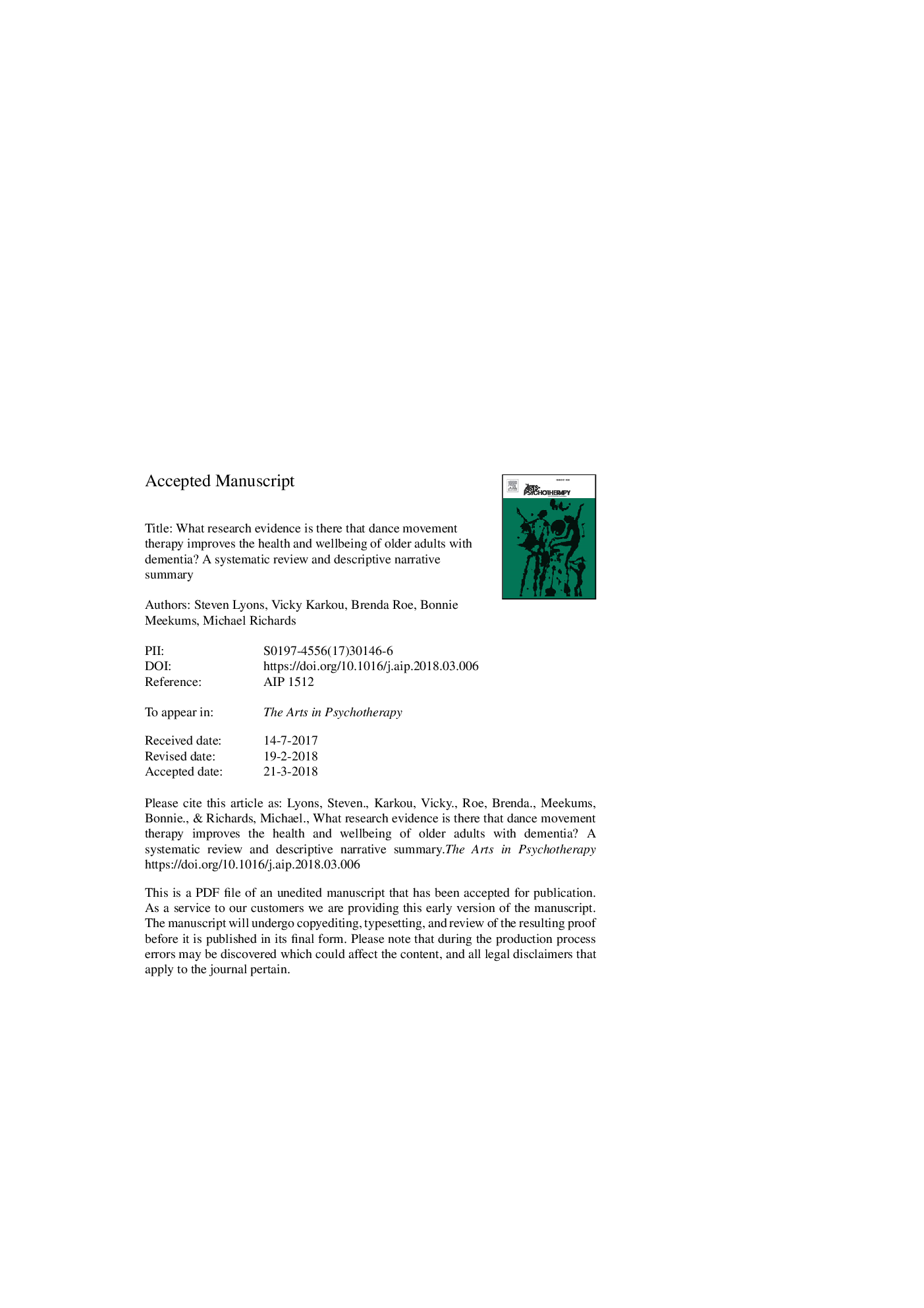| کد مقاله | کد نشریه | سال انتشار | مقاله انگلیسی | نسخه تمام متن |
|---|---|---|---|---|
| 6831301 | 1434292 | 2018 | 23 صفحه PDF | دانلود رایگان |
عنوان انگلیسی مقاله ISI
What research evidence is there that dance movement therapy improves the health and wellbeing of older adults with dementia? A systematic review and descriptive narrative summary
ترجمه فارسی عنوان
شواهد تحقیقاتی وجود دارد که حرکت حرکات رقص باعث بهبود سلامت و سلامت افراد مسن شده با زوال عقل می شود؟ یک بررسی سیستماتیک و خلاصه توصیفی روایت
دانلود مقاله + سفارش ترجمه
دانلود مقاله ISI انگلیسی
رایگان برای ایرانیان
کلمات کلیدی
رقص، جنبش، روان درمانی، کم خونی بررسی سیستماتیک،
موضوعات مرتبط
علوم پزشکی و سلامت
پزشکی و دندانپزشکی
روانپزشکی و بهداشت روانی
چکیده انگلیسی
In England, the National Institute for Health and Care Excellence (NICE) guidelines for supporting people with dementia recommend the therapeutic use of dancing and/or music as a treatment for non-cognitive symptoms, but make no direct reference to dance movement therapy or music therapy. Also, previous Cochrane Reviews in these areas have been criticized for being limited to randomized controlled trials focusing on outcomes. In order to maximize findings and explore the clinical process, this systematic review aimed to examine a broad range of research evidence (including quantitative, qualitative and arts based studies) for the benefits to health and wellbeing for adults aged 65 and older with dementia. Searches were conducted on multiple databases using predefined keywords. Two reviewers screened the texts retrieved using inclusion and exclusion criteria. The selection and process was determined by the PRISMA statement and the quality of included studies was appraised using a grading system. Results from the dance movement therapy literature are presented here in the form of a descriptive narrative summary. Findings show the existing evidence base consists of five mainly qualitative observational studies of varying methodological quality. Theoretically the included studies draw upon a person-centred approach, as well as elements of psychodynamic thinking. Therapeutic components across studies include spontaneity and improvisation, dramatic scenarios, rhythmic synchrony and symbolism. There is a focus on the importance of significant moments where the individual with dementia functions in a more integrated way, creating connections between thoughts, feelings and physical sensations.
ناشر
Database: Elsevier - ScienceDirect (ساینس دایرکت)
Journal: The Arts in Psychotherapy - Volume 60, September 2018, Pages 32-40
Journal: The Arts in Psychotherapy - Volume 60, September 2018, Pages 32-40
نویسندگان
Steven Lyons, Vicky Karkou, Brenda Roe, Bonnie Meekums, Michael Richards,
